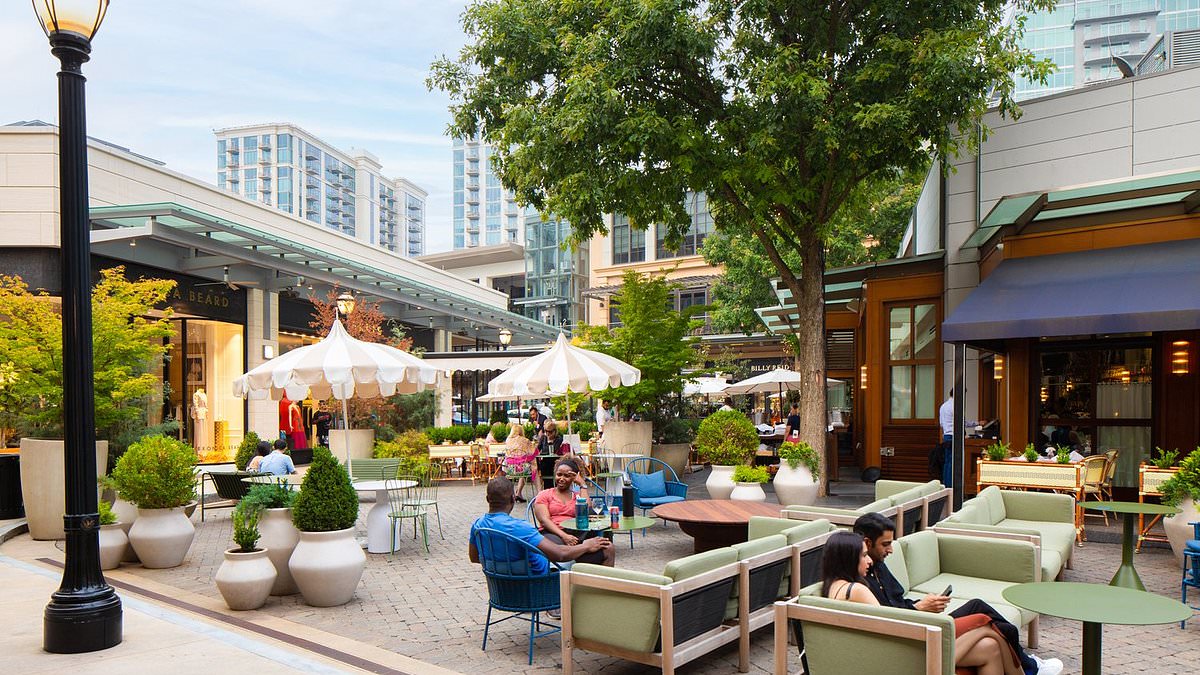Exclusive majority-white cities are springing up across the South as wealthy communities attempt to break away from poorer black neighborhoods in a bid to conserve their resources.
Residents in some privileged enclaves argue they should not be forced to subsidize their more impoverished neighbors through tax dollars.
The phenomenon has been termed ‘White Fortressing’ by Urban Institute scholar Luisa Godinez-Puig.
The process often sees wealthier, whiter locals attempt to secede from non-white areas, many of which are already disadvantaged due to historic racism.
Critics say the practice perpetuates a modern day segregation, depletes resources and hoards opportunities from the communities left behind.
But proponents say it makes the allocation of resources fairer and ensures greater representation.
The latest example is the city of St George in Louisiana, where wealthy white Baton Rouge residents have won a decade-long court battle to split from poorer neighborhoods and form their own city.
The Louisiana Supreme Court ruled on Friday that the new City of St George could move forward with incorporation, splitting off from the rest of Baton Rouge.
St George will have 86,000 residents across a 60-square-mile area in the southeast of East Baton Rouge Parish and will have its own Mayor and city council.
Supporters of the new city say that the existing city-parish government is poorly run, with high crime rates and bad schools.
‘St. George’s taxpayers provide two-thirds of the revenue to the East Baton Rouge Parish government with only one-third of that government’s expense in return,’ the movement states on its website.
‘Incorporating a city would reverse this unjust circumstance to an extent.’
But opponents say the movement is ‘racist’ and will create a ‘white enclave’ as it separates a wealthy area of the city from the majority Black city and school district.
The proposals would create stark differences in the demographics between the two cities.
In St George, the population would be just 12 percent black compared to almost half in Baton Rouge.
Meanwhile in Georgia, 11 new cities have been established around the Atlanta metro area since 2005 – many of them majority white.
Among them is Chattahoochee Hills, a city of 3,000 people of whom 77 percent are white.
‘Chatt Hills is a small city just south of Atlanta Georgia that incorporated in 2007 to preserve and project the rural lands, heritage and culture of this area,’ the city’s website states.
Another example is Brookhaven, which was approved to become DeKalb County’s 11th city by a referendum in 2012.
The 60,000 strong population is almost 60 percent white and is one of the most affluent around Atlanta.
By comparison, the Big Peach has 47 percent black or African American population, according to Data USA.
Last month, residents in Gwinett County voted to approve the creation of the city of Mulberry just as the county became majority black, Bloomberg reports.
The news infuriated supporters of a scheme to establish the city of Buckhaven, who had their efforts rebuked by Governor Brian Kemp.
‘The most notable reason residents are pushing for cityhood is the rise in crime in Buckhead,’ non-profit Liveable Buckhead states on it’s website.
In Cobb County, three new cities were proposed which would have had between a 70 to 77 percent white population.
Vinings, East Cobb and Lost Mountain all failed in their attempts in 2022, but appetite to secede remains strong.
The arguments remain largely similar to those in similar post-war movements, such as during White Flight, which saw white people move out of their communities in the wake of desegregation.
‘Municipal incorporations are a modern type of segregation triggered by sentiments of racial threat and conservatism, which I call white fortressing,’ Godinez-Puig writes in an academic paper on the issue.
‘By forming cities, unincorporated communities detach themselves from shared county-level authorities and the wider populations served in these jurisdictions.’
But it is not just the Southern communities looking to redraw boundaries.
In the Oregon, supporters of the Greater Idaho Movement are pushing for several counties to secede from their liberal home state and join more conservative Idaho.
The organization was recently given a boost after Crook County became the 13th approve measures to begin negotiations.
